WWF-Philippines Hosts the 2018 Regional Consumption and Production Coordination Meeting
September 2018
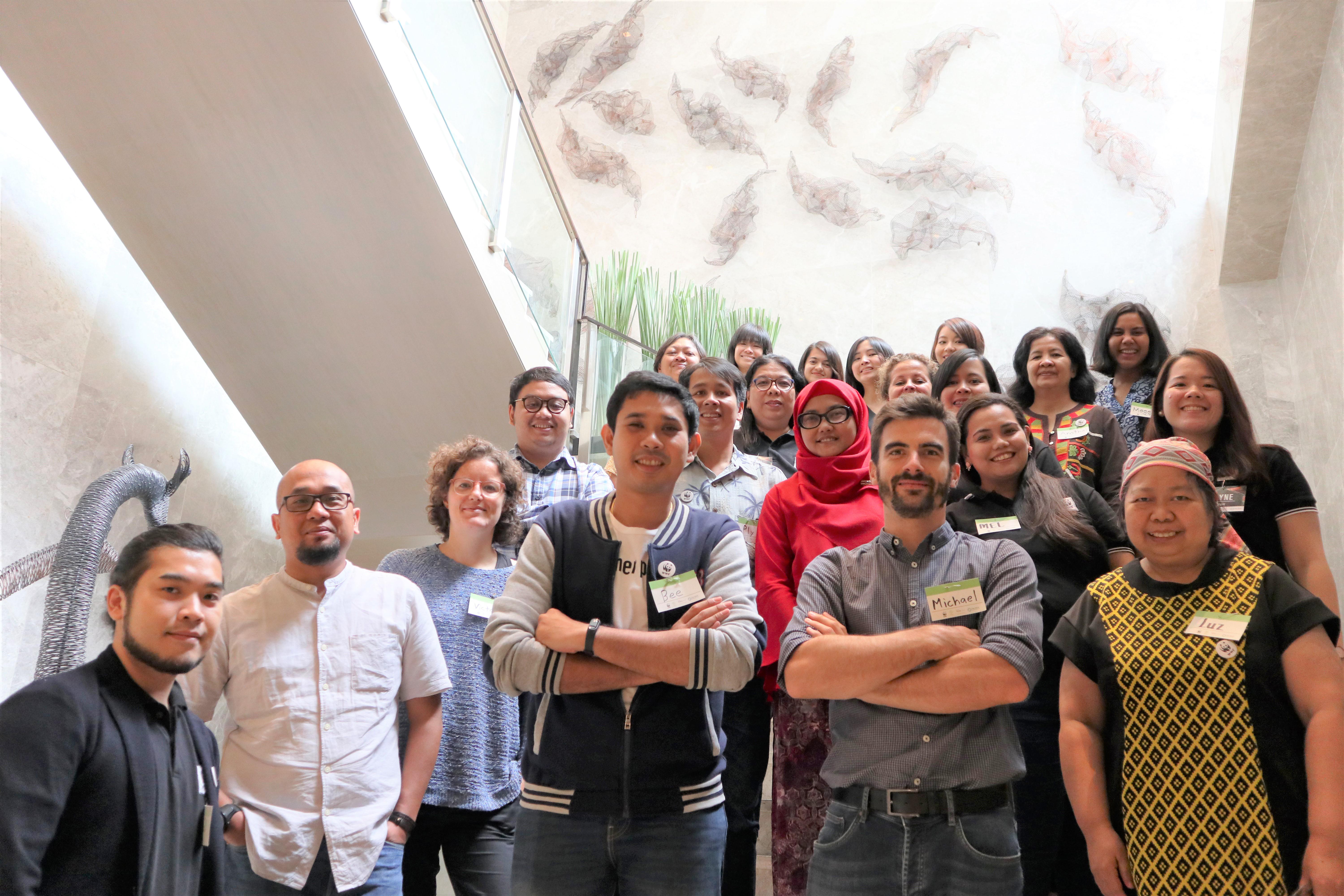
Members of WWF’s regional Sustainable Consumption and Production projects, led by WWF-Germany and implemented in Thailand, Indonesia, and the Philippines, gathered in Manila, Philippines for four days to discuss project milestones, review implementation processes and partnerships, and craft public-facing messaging to promote SCP principles in Southeast Asia. © Gabriel Villalon / WWF-Philippines
World Wide Fund for Nature (WWF) Philippines’ The Sustainable Diner: A Key Ingredient for Sustainable Tourism project hosted the second WWF-SCP (Sustainable Consumption and Production) Regional Coordination Meeting in the Philippines, which was conducted from September 4 to September 7, 2018 at Seda Hotel Vertis North in Quezon City and Taal Vista Hotel in Tagaytay City. The regional coordination meeting was attended by WWF delegates from Thailand, Indonesia, Germany, and France. Once a year, project proponents of the International Climate Initiative (IKI)’s sustainable consumption and production programs in Southeast Asia (Thailand, Indonesia, Philippines) meet and discuss country specific project delivery and milestones, share best practices and experiences dealing with project stakeholders, and review methodologies for revisions based on effective strategies and challenges experienced in doing the groundwork.
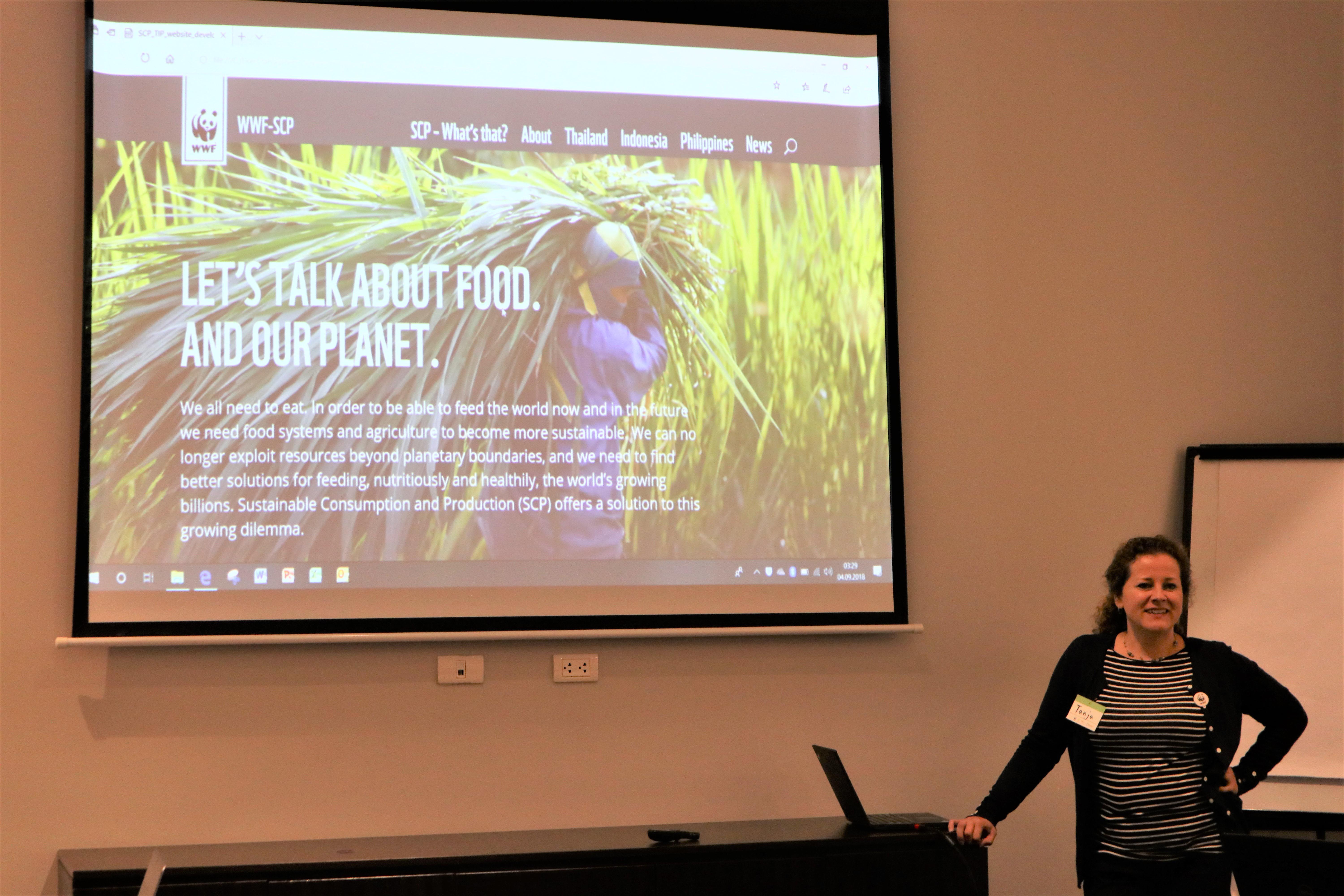
Tanja Ploetz, Project Manager of Sustainable Consumption and Production from WWF-Germany, opens the four-day regional coordination meeting by talking about the importance of food production and consumption in ensuring sustainability for a living planet. © Pam Luber / WWF-Philippines
The four-day regional coordination meeting kickstarted with a welcome message from Joel Palma, President and CEO of WWF-Philippines, as well as a recap on project objectives for sustainable consumption and production, conducted by Tanja Ploetz of WWF-Germany. Michael Mulet Solon of WWF-France gave updates from the One Planet Network, on top of conducting the workshops and experience sharing sessions.
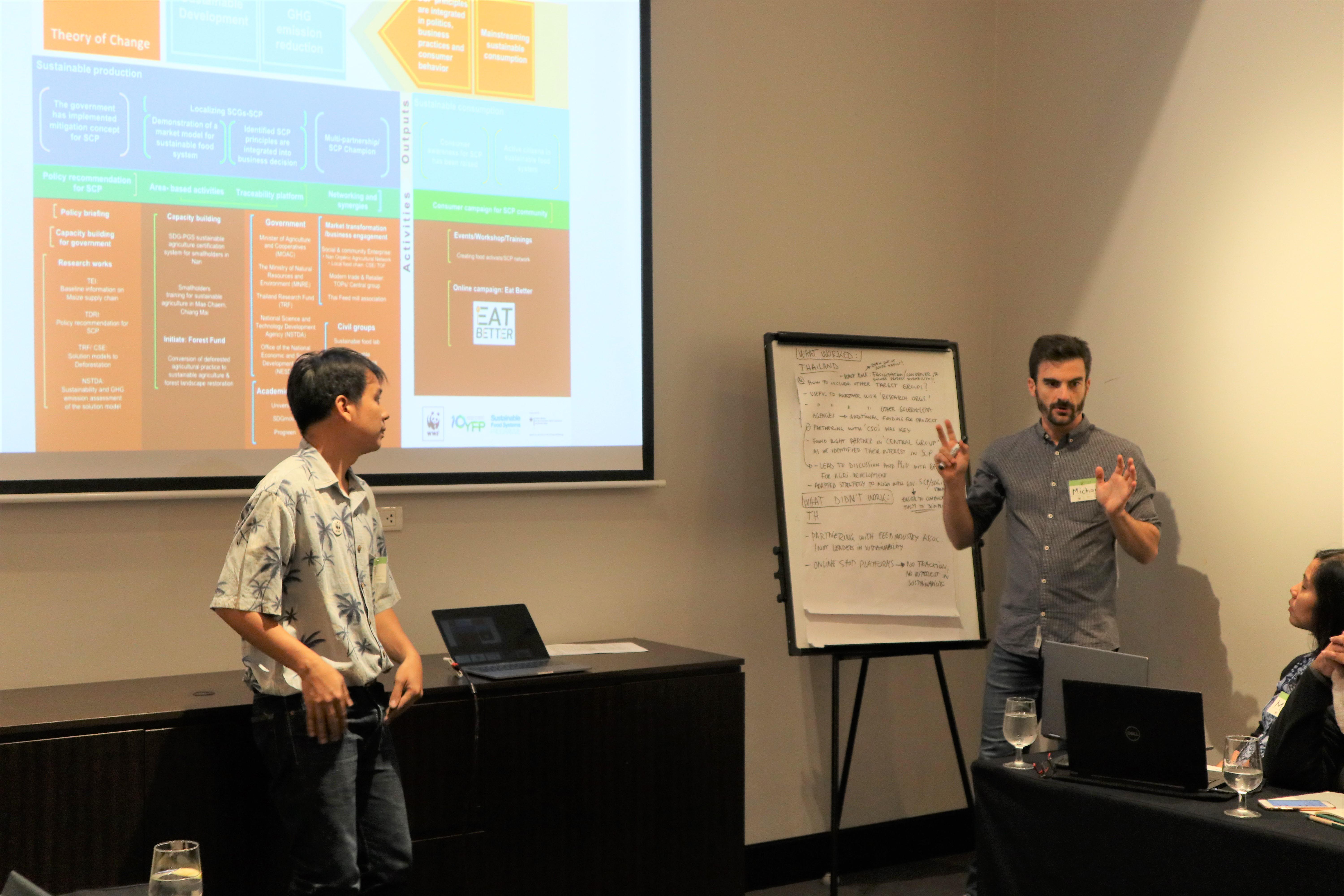
Michael Mulet Solon, International Program Officer from WWF-France, leads the Southeast Asian project teams in identifying each country’s campaign strengths and weaknesses and facilitates the sharing of best practices. Standing with him is Ply Pirom, Project Manager of Sustainable Consumption and Production in Thailand. © Pam Luber / WWF-Philippines
The experience-sharing sessions proved to be very vital and informative for the sustainable consumption and production project teams from Thailand, Indonesia, and the Philippines, as the nature of their projects have many similarities despite different core objectives and audience backgrounds. WWF-Thailand’s project focuses on transformative agriculture, WWF-Indonesia’s focuses on sustainable palm oil production and consumption, and WWF-Philippines’ focuses on sustainable dining and sustainability in the food service industry. What was especially important was the creation of operational frameworks and strategies focusing on the different stakeholders that all projects have to work with - national and local governments, private businesses, civil society organizations, and consumers.
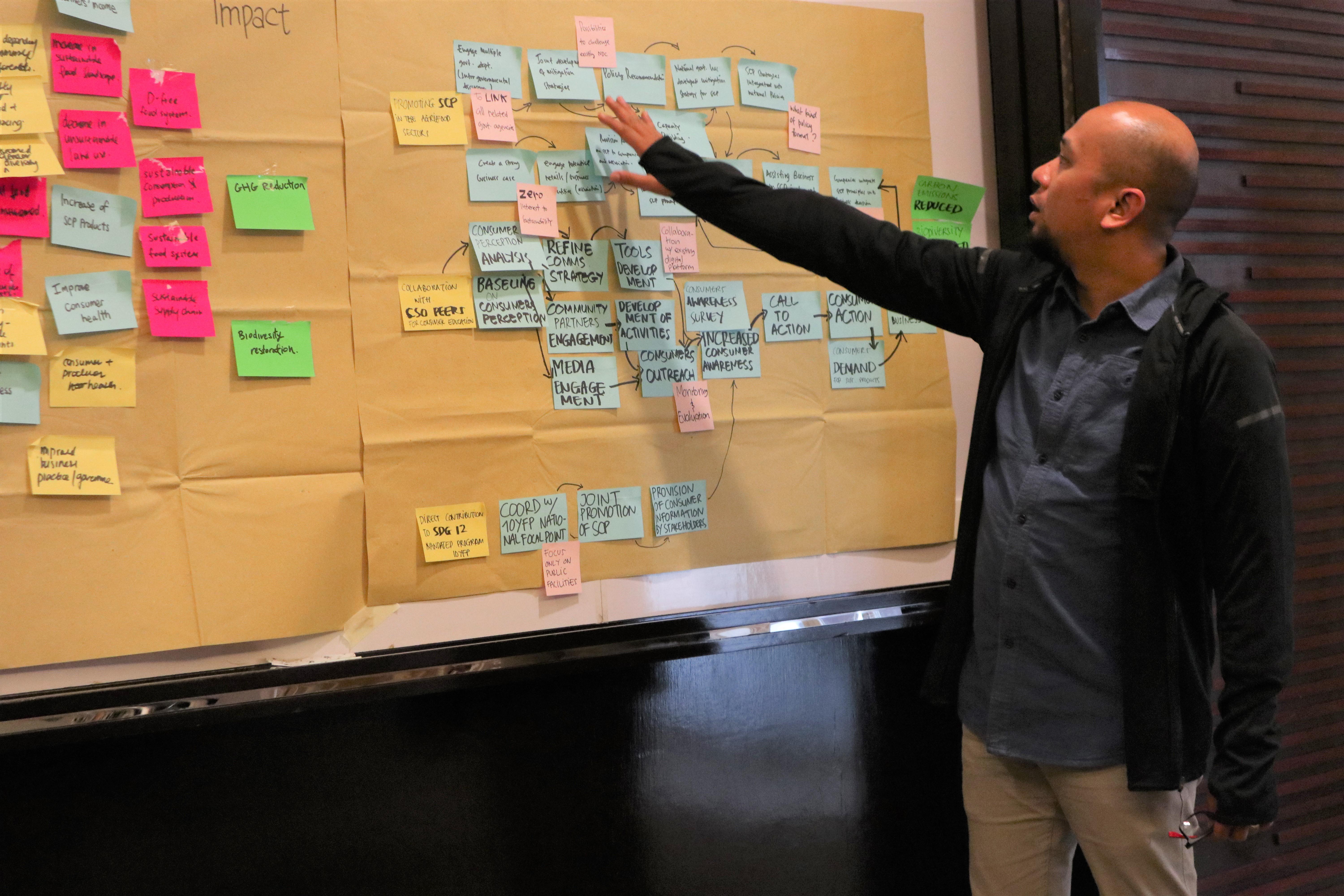
Putra Agung, Sustainable Palm Oil Program Manager from WWF-Indonesia, presents their results chain framework based on the PPMS methodology. © Gabriel Villalon / WWF-Philippines
The WWF Standards of Conservation Project and Programme Management (PPMS) methodology was applied to each project’s results chain and theory of change development, serving as a guide for overall communication plans and next steps beyond 2020. The PPMS was introduced by the WWF Network in 2005, with the standards covering the entire project management cycle, including design, implementation, monitoring and evaluation, as well as discussion and communication of learning experiences divided into five phases: Define, Design, Implement, Analyze, and Adapt and Share. Based on this methodology, the project teams were tasked to analyze the status of their projects and plot their respective strategies, stakeholders, results, and target impacts. They were also asked to brainstorm and plug supplemental efforts that are key in achieving the desired project impacts - reduction of carbon emission and protection of biodiversity.
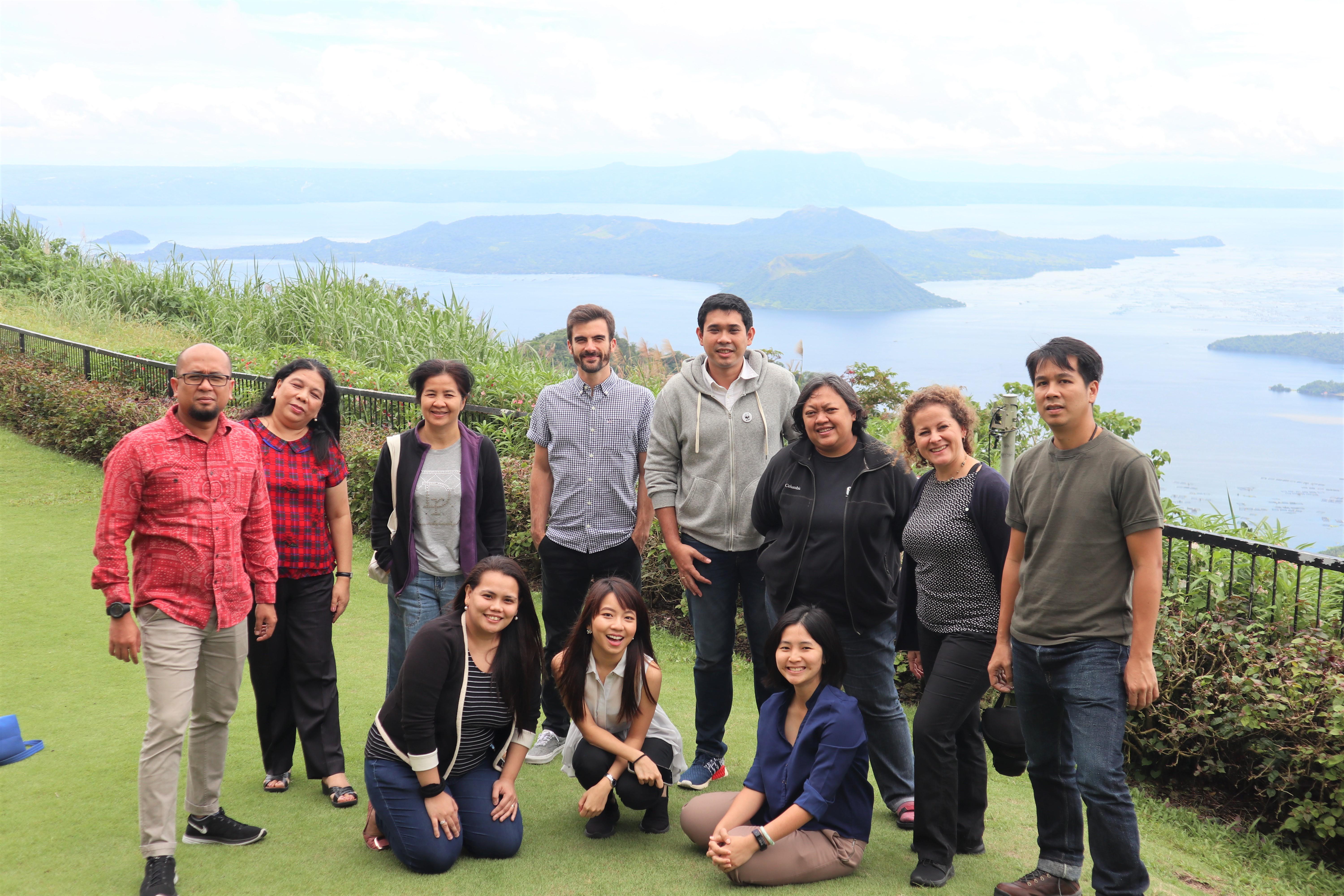
WWF International delegates from the Philippines, Indonesia, Thailand, Germany, and France enjoying the scenery in one of The Sustainable Diner project’s partner cities, Tagaytay City. © Gabriel Villalon / WWF-Philippines
Though planning, operationalizing frameworks, and strategy formation became the core objectives of the four-day regional coordination meeting, the delegates still found time to relax and have fun with each other in one of The Sustainable Diner project’s partner cities, Tagaytay City. Here’s to another successful year of integrating sustainable consumption and production principles in various major industries in the Southeast Asian region!
The Sustainable Diner project, under WWF-Philippines’ Sustainable Consumption and Production, is part of the International Climate Initiative (IKI). The Federal Ministry for the Environment, Nature Conservation, and Nuclear Safety (BMU) supports this initiative on the basis of a decision adopted by the German Bundestag.
